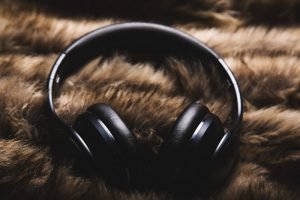How Noise Pollution Makes You Unhappy and What to Do About it

Too much noise quite literally makes our living circumstances miserable. We can feel the effects of noise pollution in our guts. But the very nature of discomfort over annoying sounds makes it difficult for our minds actually to understand how the distress comes to be.

Noise Pollution creates pain.
Under the influence of severe noise pollution, we want it to stop, get furiously angry or merely feel like running away. None of these options is of any help when sound attacks.
To put things into perspective: It bears little wonder that opponents use sound and music as torture during wartime. Excessive noise is no laughing matter.
Grasping how noise pollution causes discomfort may help us to remedy the perceived distress and make the right choices for our living environment. Noise is difficult to escape in an ever more noisy world, but the benefits of trying are all too promising.
Noise Pollution and the Happiness Formula
In his seminal work “The Happiness Hypothesis,” Social Psychologist Jonathan Haidt discusses how noise concerns happiness. Using one of the most important ideas in positive psychology, the “happiness formula,” Haidt elaborates on noise pollution detrimentally influencing your level of happiness.
The happiness formula states that H (happiness) = S (your biological set point) + C (conditions of your life) + V (voluntary activities you do). Happiness research contends that every one of us is born with a particular biological set point or range of happiness (S), which is the first element constituting our contentment in life. Then there are two different kinds of externals: our living conditions (C) and the voluntary activities (V) we undertake.
So, happiness is not entirely an inside job, but also subject to external factors from outside of yourself. We need to be sure where to look and not fool ourselves that happiness lies entirely within.
Excessive Sound Negatively Affects Happiness
There are two significant ways how noise pollution creates pain and reduces the feeling of happiness:
We Cannot Fully Adapt to Noise Pollution
First, research shows that we never fully adapt to intermittent noise. You are trying hard not pay any attention to that construction site or ambulance nearby. Too bad, studies found that despite some adaptation to sound there is evidence of impairment on cognitive tasks. Those noises will always cause stress and lower focus and concentration.
With noise pollution present it is very difficult or even nearly impossible to reach a state of flow, which with its focus and complete absorption in a single activity so beautifully can create happiness in our lives. Yes, that banging door, impertinent screaming child, and roaring motorcycle of a recognition seeking adolescent are standing in your way to happiness.
Noise From Other People is Beyond Our Control
Second, noise pollution is beyond our control. While there are specific,

We cannot control the noise others make.
mostly partial though, solutions like earplugs or noise reduction headphones, the noise is a disturbance in our environment that we can’t just switch off and we may never know when it occurs. Environmental, negative factors in our immediate environment that we can’t control are distressful and impede our happiness.
In one classic study from the 1970s, David Glass and Jerome Singer exposed people to harsh and random noise. Participants in one group had the choice to end the sound by pushing a button; only researchers asked them not to push the button unless urgently necessary. None of the participants in this group went ahead to push the button. Why? Because participants believed to have control of terminating the noise if need be which made it less distressing to them. In the second part of the experiment, the researchers asked participants to work on a challenging puzzle. Participants who thought they had control over the sound showed more persistence. Participants subjected to random noise without power gave up quicker because they would struggle more to concentrate and experienced higher levels of distress.
So, What to Do with these Insights on Noise Pollution?
We have to honestly assess and face the current level of noise we routinely experience. And not lightly discard its effects because we others or we feel just to pull oneself together.
How many times have you been in the situation that people told you not to be so sensitive about noise? Well, if you do feel distressed, you better be sensitive to the sound because it is doing you harm.
Can you control disturbances without wasting excessive mental energy? Perhaps earplugs or noise reduction headphones can do the trick if you are only subjected to noise pollution moderately and occasionally. Let the ability to be completely relaxed at home be your yardstick to answer that question.
Are you a big city dweller because you appreciate the abundance of employment opportunities and cultural density? Detail out the benefits versus the downsides. Living in a city like Shanghai, Mumbai or Bangkok indeed allows you to observe the fascinating unfolding of human society. But make no mistake, you’d also be living in one of the noisiest cities on this planet. And painfully loud places unavoidably breed disease and insanity.

Create your sanctuary with Noise Reduction Headphones. Photo by Malte Wingen on Unsplash.
Accept Human Reality and Create Your Quiet Space
You are the art director of your life. Respecting the fact that humans can only endure a limited level of noise is guaranteed to pay off. “All of humanity’s problems stem from man’s inability to sit quietly in a room alone” Blaise Pascal once said. He hinted at the transformative power for both, individual and collective human evolution, of becoming entirely quiet alone. It is a good idea to be living in an environment where you can heed that advice.






